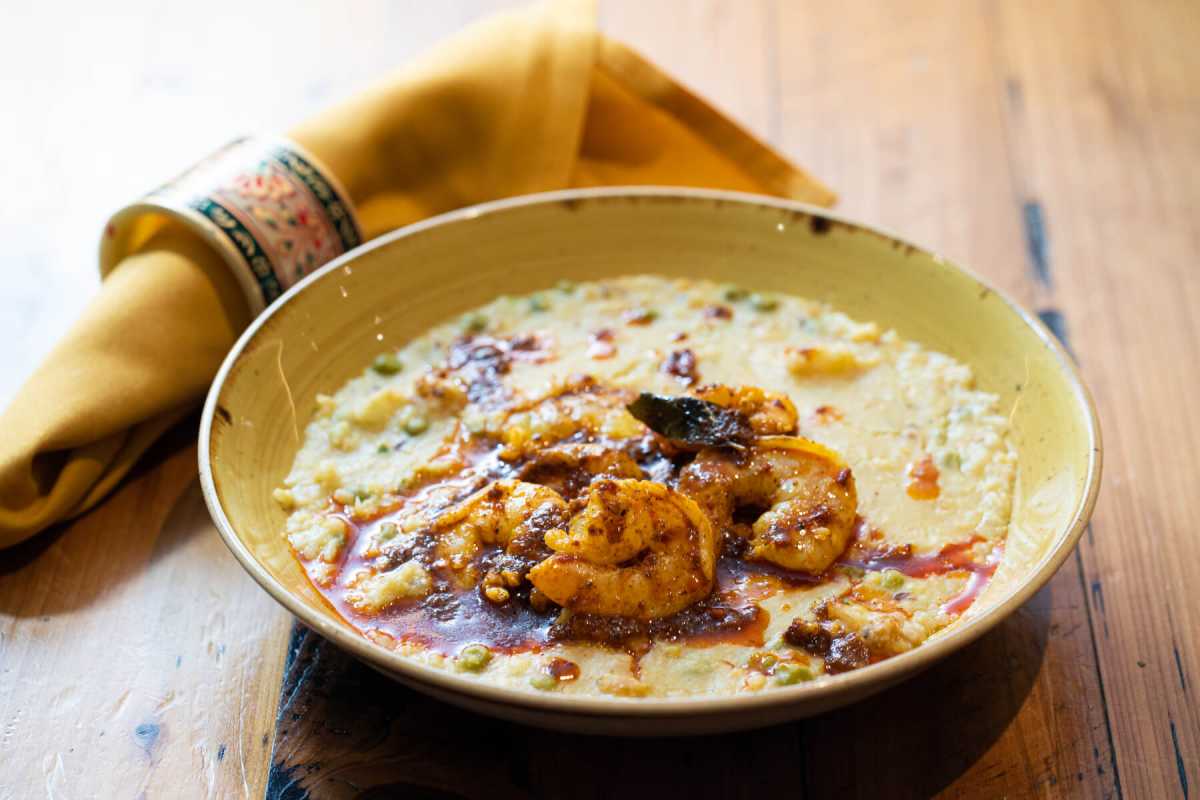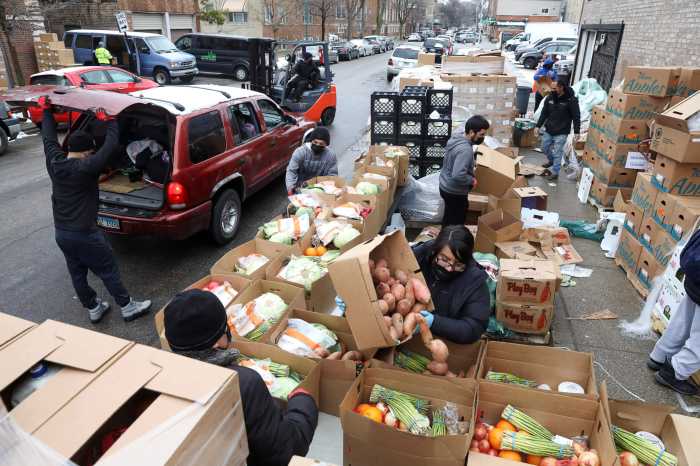I felt like I was walking into my girlfriend’s mother’s house when I entered the jewel box restaurant, TAGMO.
The familiar smells of Indian spices simmering in sauces wafted out of the kitchen into the dining room and bar. The aroma was much gentler and inviting.
TAGMO opened in September 2021 in New York’s South Street Seaport area. The restaurant is located on a cobblestone street past Big Gay Ice Cream and Van Leeuwen, a vegan ice cream shop. Once a port where spices from India and around the world were brought into New York City, it is now a restaurant and shopping district.
This is where Michelin-starred Delhi-born queer chef and restaurateur, Surbhi Sahni, 47, is serving up a tour of Indian homestyle cooking.
TAGMO, which translates to the tigress in Bhutanese and symbolizes female empowerment and strength, is Sahni’s first solo venture. For more than 20 years, she’s opened and led restaurants and pastry kitchens of some of New York’s most notable Indian eateries — Amma, Devi, Saar Indian Bistro, Tamarind, and Tulsi — with her former business partner and Michelin-starred Indian Chef Hemant Mathur.
In 2010, Sahni launched Bittersweet NYC, a dessert catering service and online shop. A decade later, she started Tagmo Treats. The venture initially continued her successful digital shop selling Indian confections, but during the early days of the pandemic, it grew into delivering boxes of homestyle Indian cooking from different Indian regions. A year and a half later, TAGMO welcomed guests to dine at its new restaurant.
At TAGMO, Sahni, a queer woman, is coming full circle in her career. The chef and restauranteur started her career as a part of an all-women restaurant crew at the Sheraton New Delhi Hotel. Today, she’s recreating that experience at her new restaurant.
“It was amazing to be part of an all-women’s crew,” Sahni said. She recalled the two women chefs who taught the emerging female chefs how to work in a professional kitchen. They taught them how to create by hand and land (they had their own garden for the restaurant long before it became a trend) to make cuisines from around the world. “It was a very incredible experience.”
Sahni did not realize how enriching that experience was until it was over — and that made it difficult for her to leave the Sheraton. She was young and exploring Delhi’s culinary arts, switching jobs often over a five-year period. In 1999, she packed her bags for graduate school in New York and went on to receive her master’s degree from New York University’s Food Studies. It was there that she was brought back to Indian cuisine while studying the anthropology of food. During that time, she met her business partners, who eventually set the Big Apple’s South Asian food scene on fire with multiple Michelin-starred Indian restaurants.
Yet, through her success, Sahni could not forget her formative years in the all-women’s kitchen.
“I’ve been thinking about doing an all-women’s kitchen” for “a very long time,” she said.
When she opened TAGMO, one of her primary goals was to create an all-woman restaurant along with immigrant women and queer people. She also focused on folding in her identity and commitment to queer people of color in her business’s mission. Sahni came out as queer about two years ago.
In Sahni’s kitchen, each bite was packed with flavor, often with a slight and swift heat hitting briefly in the back of my mouth.
I can’t forget the Haleem on the toast. The goat was slow-cooked to perfection in a stew of 32 spices, cracked wheat, and lentils. The Eral chukka, her take on shrimp and grits, is spot on with the texture, creaminess, and sweet and savory flavor of the perfectly cooked shrimp. The dish had the right amount of heat for my sensitive palate despite being described as “spicy” on the menu.
Unfortunately, I couldn’t appreciate the non-traditional dal with chickpeas or the Khatta Meetha Chaat. The textures and flavors, particularly the blend of sweet and savory in the chaat, wasn’t pleasing to my palate.
My friend’s and my meal were perfectly paired with the Austrian 2020 Jurtschitsch Rose vom Zweiglt and the extra dry Italian 2020 Mongarda Prosecco.
We finished off the night with the Firni and the Mithai Flight. The light and creamy Firni with the berries and rose water was light and refreshing. Like the Firni, the Mithai — the Indian style of fudge made from flour, milk, sugar, and nuts, and flavored with cardamom, saffron, and rose water — wasn’t overly sweet, as some Indian sweets can be made. It was sweetened just enough to satisfy a sweet tooth, had a pleasant fudgy texture, and was beautifully decorated.
Under Sahni’s care, the spices really come to life on diners’ palates. Her mastery and delicate hand with the spices and expertise in building flavor is a gift. For the first time in my life, I was able to taste, appreciate, and savor the complexity of the flavors that magically complimented each other in perfect harmony in my mouth. I also had a new variety of options for exploring Indian food that is not popular yet in America.



































